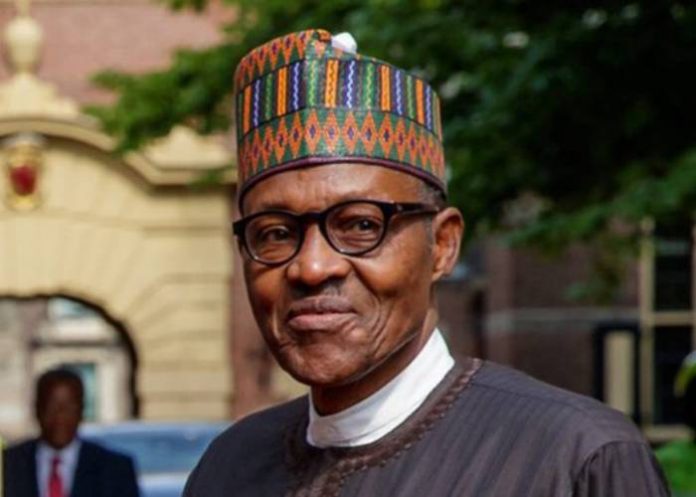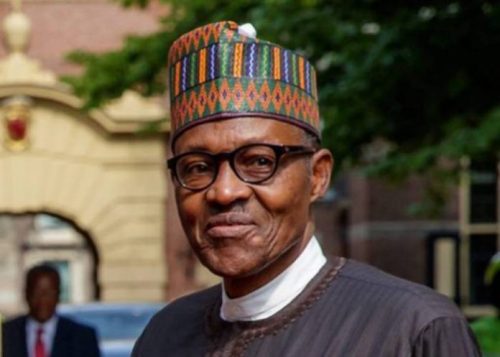
It’s only September but Nigerians are already dreading Christmas. For years, the holiday season has been marred by paralysing fuel shortages, grinding business to a halt.
“Every December, I guarantee you, fuel scarcity will happen,” said a barber in the prosperous Ikoyi district in Lagos, the country’s commercial hub.
It wasn’t supposed to be this way.
When he became president in 2015, Muhammadu Buhari appointed himself oil minister and vowed to end the shortages, the result of an inefficient and graft-riddled fuel subsidy scheme.
But raising the price of fuel at the pump turned out to be politically explosive so he agreed to compromise.
Instead, he cut out the fuel marketers, effectively making the state-run Nigerian National Petroleum Corporation (NNPC) the sole importer of fuel.
Supporters say the strategy is fortifying the country against future shortages but opponents believe it makes the NNPC more opaque and susceptible to graft.
The subsidy bill has spiked and as February elections approach, questions are being asked about the government’s management of oil sales and earnings.
“Dramatically is not quite the word, it’s astronomically rising,” said Cheta Nwanze, research head at SBM Intelligence, a Lagos-based advisory firm. “It’s dangerously unsustainable.
“The NNPC is seen as a piggy bank for whoever occupies the presidency. We were promised more transparency in the operations of the NNPC and that has not been delivered.
“Now it’s all in little black books.”
‘No oversight’
The fuel subsidy scheme has been described as a sprawling web of patronage and mismanagement, a microcosm of the dysfunction in modern Nigeria.
Despite being Africa’s largest oil producer, churning out some two million barrels a day, OPEC member Nigeria doesn’t have fully working refineries and actually imports the bulk of its fuel.
The fuel is sold at a subsidised rate of around 145 naira ($0.40, 0.34 euros) per litre — half the price in neighbouring Benin.
Cheap fuel may keep voters happy but marketers have previously overcharged the state for fuel, then turned around to sell the cut-rate petrol at a profit to neighbouring countries.
Marketers have stopped fuel imports when the government owed them outstanding subsidy payments, causing shortages that bring the country to a standstill.
Under Buhari’s new configuration, the NNPC imports the bulk of the petrol then absorbs the subsidy into its operational costs as “under recovery”. Critics say that is problematic.
“The NNPC is not subject to any form of direct oversight,” said Abel Akeni from BudgIT, a civil society group focusing on transparency.
“There is a real concern that the money could be redirected. There is no breakdown of who is receiving what amount. One thing we are certain of is something is not right.”
According to the latest NNPC data obtained by AFP, in April the company paid $215 million in under-recovery — nearly five times as much as the $46 million six months earlier in November.
The numbers appear to be climbing higher. In May, the under-recovery amount hit $245 million.
That approaches an estimate floated by junior oil minister Emmanuel Ibe Kachikwu, who reportedly said in April that Nigeria was spending $321 million monthly — or $3.9 billion annually — on subsidy payments.
He later denied making the remark.
The bill is beginning to rival that spent during the so-called subsidy scam during former President Goodluck Jonathan’s tenure five years ago, when the subsidy payments came to $5 billion, the NNPC reported in a January 2018 presentation to the Senate.
Increased scrutiny
NNPC spokesman Ndu Ughamadu did not answer repeated requests for comment.
The company has said the sudden increase is a result of increasing its petrol importation, higher oil prices and fuel smuggling.
But many aren’t convinced. In June, the former finance minister Kemi Adeosun said remittances from the NNPC to the national treasury were “unacceptable”.
Political opponents are more direct.
Lawmakers said in July there was an “urgent need” to investigate the NNPC shortfall, saying it was “likely as a result of some individuals not doing what they are supposed to”.
They have reason to be suspicious.
In 2014, for example, the then-central bank governor Lamido Sanusi alleged the NNPC had failed to remit $20 billion in oil revenue over an 18-month period in the years before.
The previous government disputed the figure and Sanusi was suspended from his post in what was seen as a politically motivated decision.
A long-term solution to the subsidy sinkhole would be to introduce a more flexible pricing system, said Nigerian economist Nonso Obikili.
That would mean the price at the pump isn’t subject to fluctuations in the global price of crude and make it immune from government manipulation.
“But that’s where the government struggles,” said Obikili. “There’s too many vested interests.”



Comment here